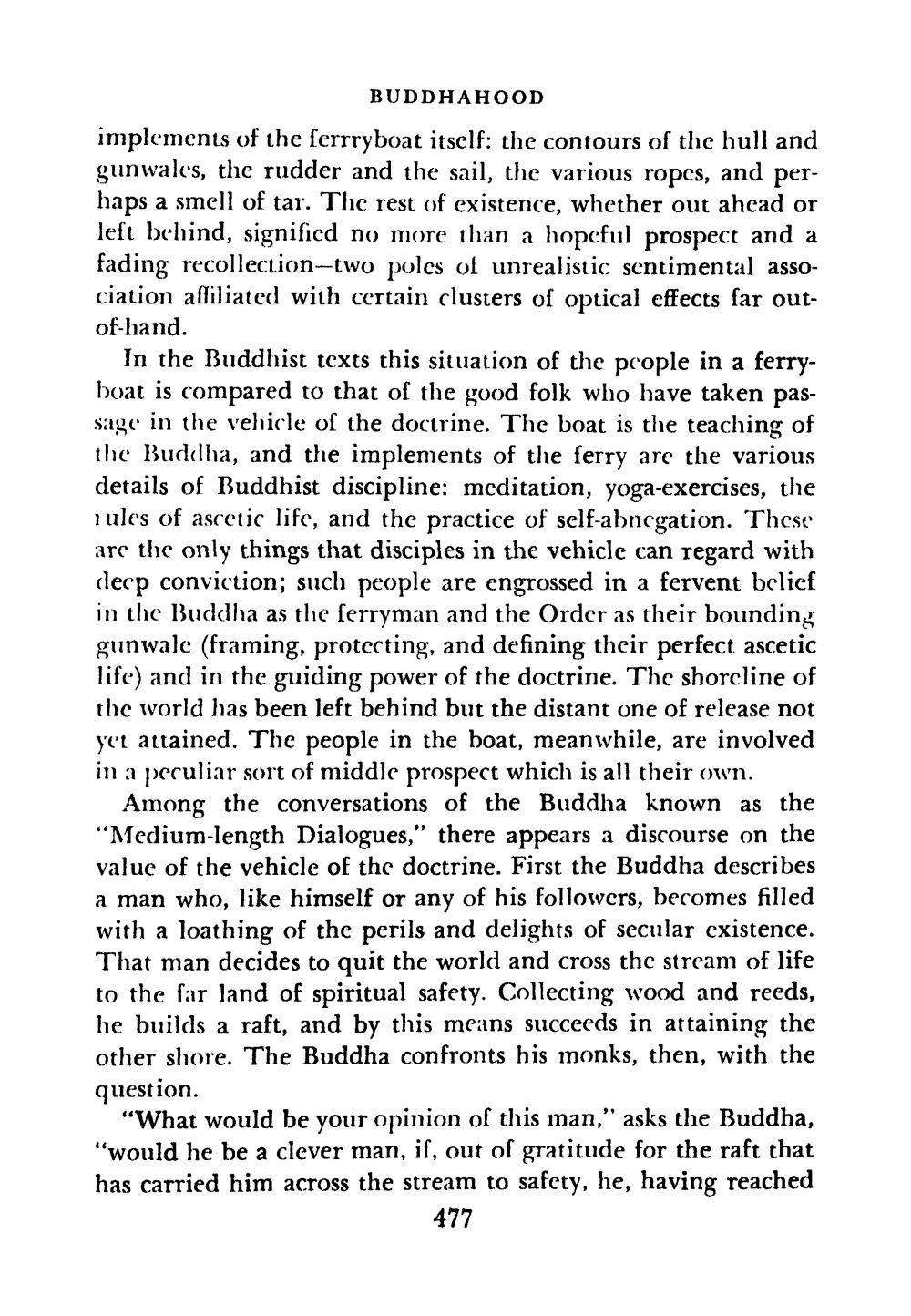________________
BUDDHAHOOD implements of the ferrryboat itself: the contours of the hull and gunwales, the rudder and the sail, the various ropes, and perhaps a smell of tar. The rest of existence, whether out ahead or left behind, signified no more than a hopeful prospect and a fading recollection-two polcs of unrealistic sentimental association affiliated with certain clusters of optical effects far outof-hand.
In the Buddhist texts this situation of the people in a ferryboat is compared to that of the good folk who have taken passage in the vehicle of the doctrine. The boat is the teaching of the Buddha, and the implements of the ferry are the various details of Buddhist discipline: meditation, yoga-exercises, the rules of ascetic life, and the practice of self-abnegation. These are the only things that disciples in the vehicle can regard with decp conviction; such people are engrossed in a fervent belief in the Buddha as the serryman and the Order as their bounding gunwale (framing, protecting, and defining their perfect ascetic life) and in the guiding power of the doctrine. The shoreline of the world has been left behind but the distant one of release not yet attained. The people in the boat, meanwhile, are involved in a peculiar sort of middle prospect which is all their own.
Among the conversations of the Buddha known as the “Medium-length Dialogues," there appears a discourse on the value of the vehicle of the doctrine. First the Buddha describes a man who, like himself or any of his followers, becomes filled with a loathing of the perils and delights of secular existence. That man decides to quit the world and cross the stream of life to the far land of spiritual safety. Collecting wood and reeds, he builds a raft, and by this means succeeds in attaining the other shore. The Buddha confronts his monks, then, with the question.
"What would be your opinion of this man," asks the Buddha, "would he be a clever man, if, out of gratitude for the raft that has carried him across the stream to safety, he, having reached
477




